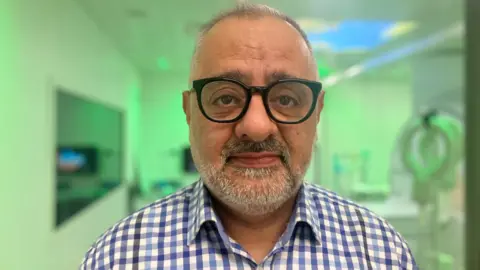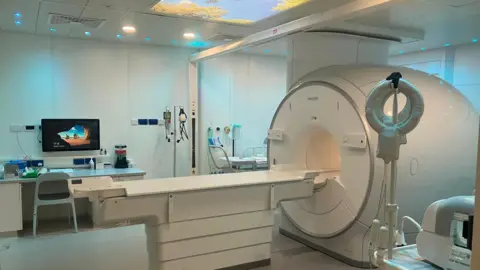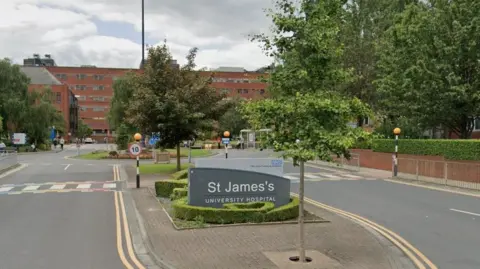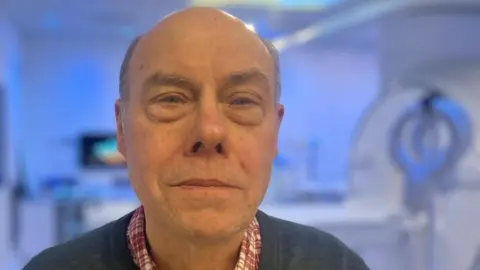New cancer care approach 'tip of iceberg' - researcher
 BBC/Elizabeth Baines
BBC/Elizabeth BainesA new "cutting-edge" approach to cancer treatment being pioneered at a Leeds hospital could "revolutionise" patient care, a leading researcher has said.
The Leeds Cancer Centre at St James' Hospital is only the second such centre in the UK to introduce what is known as Magnetic Resonance Imaging (MRI)-only radiotherapy.
According to Dr Bashar Al-Qaisieh, lead for research and innovation and radiotherapy imaging at Leeds Teaching Hospitals NHS Trust, it means cancers could be targeted "more precisely and make it smoother for the patient", while also involving fewer appointments for patients.
Using the technology was the "tip of the iceberg" for the future of cancer care, Dr Al-Qaisieh added.
 BBC/Elizabeth Baines
BBC/Elizabeth BainesTraditionally, patients undertaking treatment for cancer need to undergo computed tomography scans - better known as CT scans.
However, Dr Al-Qaisieh said MRI scans had "better imaging qualities, to see tissues and contrast more clearly".
"It also has more powerful tools in the future to explore. We will be able to tell which part of the tumour is more aggressive or how it responds to radiation," he said.
The MRI scanner worked using magnets around the patient which "excite" particles inside the body, Dr Al-Qaisieh explained.
It showed clear distinctions between water, fat, air, bone, soft tissues and muscles.
 Google
Google"There are so many functionalities that can give us even more information to target cancer more precisely and make it smoother for the patient", Dr Al-Qaisieh said.
"It is more detailed compared to a conventional CT and it's bespoke to the patient."
At the moment, the MRI scanner can only be used to treat patients with prostate cancer, however Dr Al-Qaisieh said that was "only the tip of the iceberg".
Plans were already under way to extend the technique this year to patients with brain, head and neck, and liver cancers, he said.
Doing so would make Leeds Cancer Centre the first to apply this technique across such a wide range of cancers in the world, according to Dr Al-Qaisieh.
 BBC/Elizabeth Baines
BBC/Elizabeth BainesNeil, 69, who has been among the first patients at Leeds Cancer Centre to benefit from the new technology, said he believed the smaller number of appointments involved would "make a difference" to anyone being treated in this way.
"It can only be a good thing to improve something - and it has been painless for me," he said.
He added: "To say it is in my home city where these advancements are taking place, it makes me a bit proud really."
Listen to highlights from West Yorkshire on BBC Sounds, catch up with the latest episode of Look North or tell us a story you think we should be covering here.
